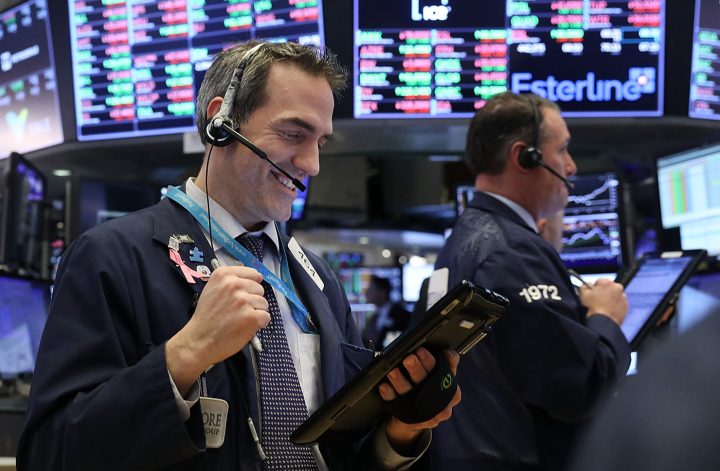BUSINESS MAVERICK
After a decade of growth stock supremacy, value stocks could now lead the charge

Value investing is nothing more or less than buying investments on sale. But this traditional investment strategy has been left in the dust by thinning margins that have boosted growth stocks, especially in the tech sector. That could now be changing.
The origins of value investing go back to research by Benjamin Graham and David Dodd in the 1920s, when both men began teaching at Columbia Business School. Many of the concepts of value investing are described in their book, Security Analysis, and in Graham’s book, The Intelligent Investor. Warren Buffett, the most successful practitioner of value investing, was a student of Graham’s at Columbia.
Value investing starts from the premise that an investor who buys a company’s shares owns part of the business. While this may seem obvious, many investors “play the market” without regard to the underlying fundamentals of the companies they own, says financial magazine Forbes.
In the words of Buffett: “It is better to be approximately right than precisely wrong.”
Over multiple decades, the traditional value approach of buying cheap stocks has worked remarkably well. Over the past decade, not so much.
The problem, according to investment management company Schroders, is that since the global financial crisis value stocks have endured their worst period of underperformance on record. The normal bounce-back for value just hasn’t happened. So does this “lost decade” mean there has been a permanent shift away from value?
Probably not, Schroders says. For a start, it looks like an anomaly. One measurement of performance developed by two leading academics, Eugene Fama and Kenneth French, suggests there have been only three significant periods of underperformance for value in the past 90 years: the Great Depression of the 1930s, the technology bubble of the 1990s and the post-credit crunch period of the past 10 years. But the length and depth of the most recent episode is the most extreme on record.
The past 10 years, however, have been marked by several unique features that have turned value on its head. The most notable has been a prolonged period of slow economic growth after the financial crisis, coupled with aggressive central bank stimulus.
The relative scarcity of earnings growth has also magnified investors’ interest in growth stocks, which are perceived to offer more earnings certainty. This trend has been focused in a handful of tech companies, notably the so-called FAANG stocks — Facebook, Apple, Amazon, Netflix and Google (Alphabet), Schroders reports.
In general, growth businesses are likely to reinvest profits instead of paying out dividends to shareholders, as a way to fuel that growth. Their purchase price can be seen as expensive and overvalued, but with such stocks tending to be newer companies with products that are expected to be in high demand in the future, the expense is justifiably overlooked.
But as corporate and sovereign bond interventions have further obscured price discovery, the effect of reducing interest rates to historic lows has favoured growth stocks.
‘It is better to be approximately right than precisely wrong.’
“Their profits, seen as stretching out into the distant future, are more highly valued by the stock market in these circumstances than when rates are high,” says Piet Viljoen, portfolio manager at CounterPoint Asset Management. Falling interest rates have therefore benefited them far more than value stocks in the recent economic environment, which has been exacerbated by the Covid-19 pandemic.
However, Viljoen says, despite the fundamentals being correct, the market seems to have taken the assumptions a little too far. In South Africa, for example, just as in other financial services, the banks are being ignored to focus on popular tech counters.
“The theme seems to have taken its course,” he says.
Viljoen says that taking the global picture into consideration, value stocks are trading cheap the world over, but emerging markets are outperforming their cousins in the developed world. Furthermore, local lower-priced stocks are leading the charge.
But Viljoen adds that the sector in the country that is the best of all is small caps. Viljoen manages the Value Fund housed at the boutique asset outfit called SA INCe — counterparty value fund. Shares like Shoprite, Absa and Nedbank made the cut.
Delphine Govender, chief investment officer at value manager Perpetua Investment Managers, agrees that SA Inc shares, like banks and retailers, are offering considerable value even with unstretched assumptions.
But earnings visibility for many of these domestic companies is poor and therefore expectations and sentiment by most market participants are low. This creates the opportunity for value investors. Govender says with sentiment being this poor and the overall environment being so opaque, the smallest amount of good news or “less negative” news can create meaningful upside on shares priced for dire outcomes.
Govender says the broad belly of the domestically oriented companies is meaningfully undervalued, with shares here trading at wider discounts over the past six months than have been available for the past eight to 10 years. But she also warns that such deep discounts can come with great risk. The main issue worrying investors during the Covid-19 period has been liquidity – can locally listed companies that have been exposed to the already weak South African economy survive through this unexpected crisis?
She points to Massmart, for example, which has been underperforming and restructuring the business for some time. The share came under significant pressure, falling more than 75% in 2020 when it touched its low of about R19/share.
However, the business has been assured of financial support from parent company Walmart from the US.
“While things can often get much worse before they get better, we have started to see that there are signs of moderate improvement, yet the market expected a far worse reality,” she says.
This is why in just the past month the share has now risen more than 70%, despite recording losses. The same goes for Shoprite, which has risen more than 30% in the past week. The market was pricing the share for a far worse performance than the company recently showed in its results. It is this sort of mispricing that is the bread and butter of value investors.
But Govender concedes that it is early days in the earnings recovery for many SA Inc shares.
“We are selective in which shares and sectors to take advantage of, but there is a lot of opportunity.”
Value investors can sometimes be labelled as “old economy” investors and what’s more important is avoiding sectors undergoing structural disruption and decline, such as property, where Perpetua has been more cautious.
Your investing style, investment horizon and tolerance for risk can help determine what type of stock you invest in. The two main types of funds — growth and value — have different characteristics that can match your investing style.
Owning a mix of both funds is probably a smart move, but it can still be worthwhile to understand how each fund works. DM/BM


















 Become an Insider
Become an Insider
Comments - Please login in order to comment.